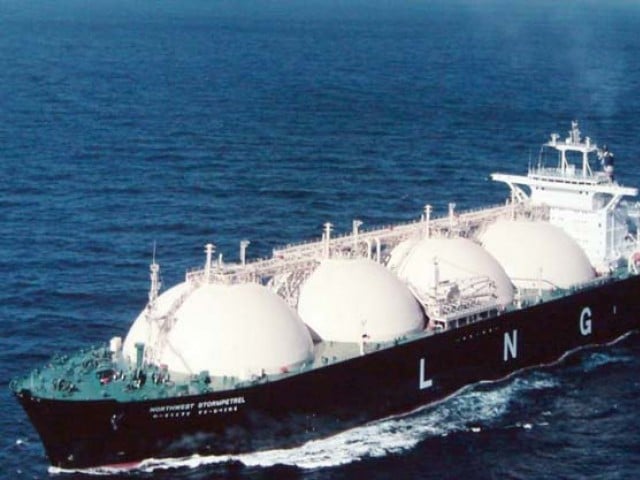
As the private sector is engaged in setting up liquefied natural gas (LNG) terminals, it has sought guarantees and waivers from some obligations and regulatory approvals.
Interestingly, the existing LNG terminals have plans to replace the Floating Storage and Regasification Unit (FSRU) without financial risk for the government but the maritime affairs minister opposes the plan.
The government has allowed five parties in the private sector to set up more LNG terminals. However, it has made it clear that it will not bear any financial risk, which it faces in the case of existing terminals.
Documents revealed that the developers of new LNG terminals, which included Tabeer Energy and Energas, were pressing the Port Qasim Authority (PQA) and the government to win waiver from the commitments included in the implementation agreement (IA). Their plans to set up LNG terminals have also been delayed.
PQA board of directors has already waived the fee for inland dumping site. It is similar to the exemption given by the government to the existing LNG terminals set up with state guarantees.
Tabeer Energy Private Limited (TEPL) has said that it will not make the remaining payment of $8 million if its demands are not met. Moreover, Energas has refused to pay royalty to PQA.
Tabeer Energy, in a letter addressed to the PQA board, said its engineering, procurement and construction (EPC) contractor’s ability to meet the 24-month construction timeline was contingent on how the pandemic evolved.
Since the pandemic was not prevalent at the time of issuance of the provisional letter of intent (LOI) and/or PQA 2019 guidelines, it requested PQA to allow up to 30-month timeline. “While we acknowledge PQA’s stance on having the final LOI accepted and IA signed on the same date, TEPL maintains that it will be in a position to pay the remaining $8 million concession fee only after the fulfilment of all the conditions,” it said. It also demanded the allocation of pipeline capacity and signing of a gas transportation agreement.
PQA had raised concern over the location of a jetty. In response, Tabeer Energy’s consultant Japan Marine Science said it would address PQA’s concern regarding TEPL’s stance on maintaining the original jetty location.
Tie-in-point coordinates were still awaited from Sui Southern Gas Company (SSGC) and Sui Northern Gas Pipelines Limited (SNGPL) without which TEPL could not ascertain where its project’s off-to-onshore pipeline would end and thus could not accept the terms of final LOI, it said.
In a separate letter, Energas said the provisional LOI specified a 25% increase in royalty after every five years. However, PQA has unilaterally amended the structure of royalty. Energas has called for reverting it.
It also asked for deferring the application of certain regulatory conditions. It pointed out that the Financial Action Task Force (FATF) had placed Pakistan in the grey list, which prompted various financial institutions in the country to take a more restrictive approach in allowing registration of foreign entities and consequently impose stringent regulatory requirements/ restrictions on allowing foreign investment in Pakistan.
The company required four main approvals from the Ministry of Interior, Competition Commission of Pakistan, State Bank of Pakistan and Securities and Exchange Commission of Pakistan. However, it has called for deferring certain requirements stated in the LOI and IA.
Pipeline capacity
The new LNG terminal projects are on paper only and are not seeking allocation of pipelines, which is against the spirit of third-party access (TPA) rules. They allow private parties to use the pipeline capacity through a competitive process and first-come-first-served basis.
The Petroleum Division has asked the developers of LNG terminals to sign binding gas transportation agreements (GTAs) that will contain ‘take or pay’ provisions and the clock for financial obligations will start the day they sign these agreements.
This means that the LNG terminal developers will be bound to pay the pipeline fee even if they do not transport gas after signing GTAs.
“Your LOI from PQA requires you to complete your terminal within 24 months of signing the implementation agreement with PQA,” the Petroleum Division said.
Published in The Express Tribune, February 4th, 2021.
Like Business on Facebook, follow @TribuneBiz on Twitter to stay informed and join in the conversation.


















COMMENTS
Comments are moderated and generally will be posted if they are on-topic and not abusive.
For more information, please see our Comments FAQ